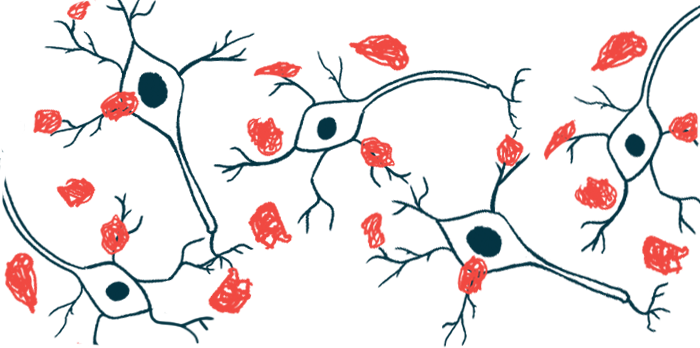IU1 enhances protein clearance, may aid in treating Parkinson’s
Compound helps healthy proteins by boosting damaged protein removal
Written by |

A compound called IU1 may improve the body’s ability to maintain healthy proteins by boosting two critical processes that play a role in removing damaged proteins from cells, a study shows. The findings could have implications for age-related conditions like Parkinson’s disease.
The study, “Pharmacological inhibition of USP14 delays proteostasis-associated aging in a proteasome-dependent but foxo-independent manner,” was published in Autophagy.
Aging is often associated with a decline in standard protein quality control, or protein homeostasis, which can lead to harmful proteins accumulating in the body. These proteins can damage cells, contributing to developing conditions such as Alzheimer’s disease and Parkinson’s, and their getting worse.
In Parkinson’s, aging promotes the degeneration of nerve cells, causing protein clumps to accumulate inside nerve cells, impaired mitochondrial function, and increased inflammation. Impairment in the function of mitochondria, the cells’ powerhouses, has been associated with the development and progression of Parkinson’s.
Improving protein homeostasis
Here, Korean researchers sought to understand how two protein-quality control systems, proteasomes and autophagy, could be activated simultaneously to slow this decline.
Proteasomes are small complexes in cells that act like molecular garbage disposals, breaking down damaged or unneeded proteins into smaller pieces. Autophagy is a recycling mechanism wherein cells consume and break down damaged or excess parts, such as protein aggregates.
“A few years ago, I learned from an academic conference that a certain drug called IU1 can enhance proteasomal activity, which encouraged our group to test its anti-aging effects,” Seogang Hyun, a professor at Chung-Ang University and the study’s lead author, said in a press release.
The researchers used fruit flies to test the impact of IU1. The flies experience age-related muscle deterioration similar to humans. After treatment with IU1, the researchers found the drug boosted proteasome activity, breaking down faulty proteins and diminishing their aggregation and accumulation. The drug also enhanced autophagy.
UI1 exerted these functions by inhibiting ubiquitin-specific peptidase 14 (USP14), an enzyme that removes a tag called ubiquitin that cells use to mark proteins for degradation. This mark lets the proteasome identify which proteins need to be cut into smaller pieces to be recycled. By removing this tag, USP14 naturally diminishes protein elimination by the proteasome.
“Inhibiting the activity of [USP14], a component of the proteasome complex, with IU1 enhanced not only proteasome activity but also autophagy activity simultaneously. We demonstrated that this synergistic mechanism could improve age-related muscle weakness in fruit flies and extend their lifespan,” Hyun said.
Similar results were seen in human cells, indicating IU1 may hold promise for people.
“Reduced protein homeostasis is a major characteristic of degenerative diseases such as Alzheimer’s and Parkinson’s disease. The results of our study might lay the groundwork for the development of treatments for various age-related diseases,” Hyun said.



